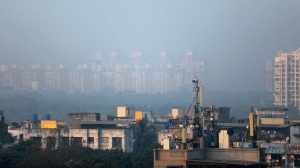Invisible minister
This refers to your editorial 8216;Wanted: minister8217; July 23. I was happy when I saw Manmohan Singh become prime minis...

This refers to your editorial 8216;Wanted: minister8217; July 23. I was happy when I saw Manmohan Singh become prime minister after so much drama in the Congress party, as I have special respect for him. But where is he heading? For six long years he protested against chargesheeted NDA ministers 8212; now what about his own ministers? Where is his coal minister hiding? His silence on this whole issue is troubling.
8212; Ganesh Bangalore
8226; It is disgusting how opposition leaders are threatening to stall parliamentary proceedings over the Shibu Soren issue. This reflects poorly on their notions of parliamentary decorum and etiquette. The pandemonium created in Parliament shows that the BJP has nothing substantial to challenge the Congress with after being miserably trounced in the general elections. Their attitude smacks of a double standard.
8212; Safiuddin Khan Aligarh
8226; Why is a lawmaker running away from the law?
8212; A. Vincent Sharjah
Private initiatives
8226; I agree with the fundamental arguments in 8216;On reservations, a wake-up call8217; by Kancha Ilaiah IE, July 22. I think the Indian private sector has gotten away with subtle discriminatory behaviour for far too long. The US is better in this respect because employers accept their social responsibilities and address inequalities. The Indian private sector insists on competition and merit, but it rigs the game by setting threshold standards that it knows very well cannot be met by 8216;8216;large8217;8217; sections of particular groups because of historical disadvantages and, in the end, this implicitly furthers caste politics. Ilaiah rightly asks, what have industrial houses done to level the field, say, by providing English training and committing themselves to other educational investments?
8212; Jeevan Dallas
8226; I do not understand the reasoning in the very first paragraph of Kancha Ilaiah8217;s article: 8220;One of their private sector8217;s main contentions is that if reservations are introduced, competitiveness will suffer. The argument is flawed because it is assumes that Indian industry is presently very efficient and globally competitive, which is clearly not so.8221; I don8217;t see where the assumption stated is made. To say something will become worse is not to assume that it is now good. What they seem to be saying is that the already inefficient and non-competitive industry will become yet less efficient and less competitive. It is not that the author has pointed out any flaw, but it seems that his own understanding is flawed.
8212; Debraj Chakrabarti On e-mail
Course correction
8226; The tragedy at Kumbakonam was heart-rending. But what struck me most was the advice of a teacher who asked the children to remain in their places when they should have been evacuated immediately. The incident should prompt the education department to introduce a subject at the elementary level to teach children what they should do during calamities like fire, floods and earthquakes. With the kind of condition many of our schools are in, a subject on survival techniques gains immense importance.
8212; S.R. Devaprakash Tumkur
- 01
- 02
- 03
- 04
- 05































